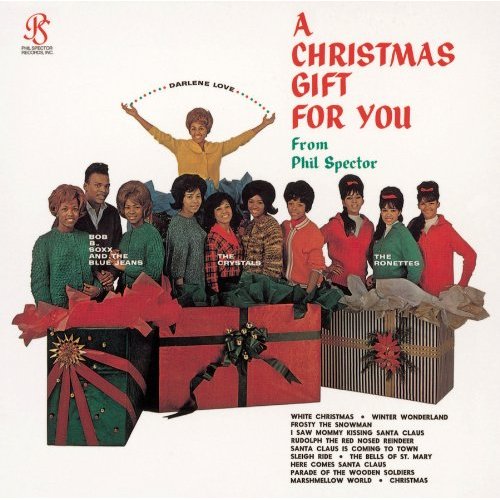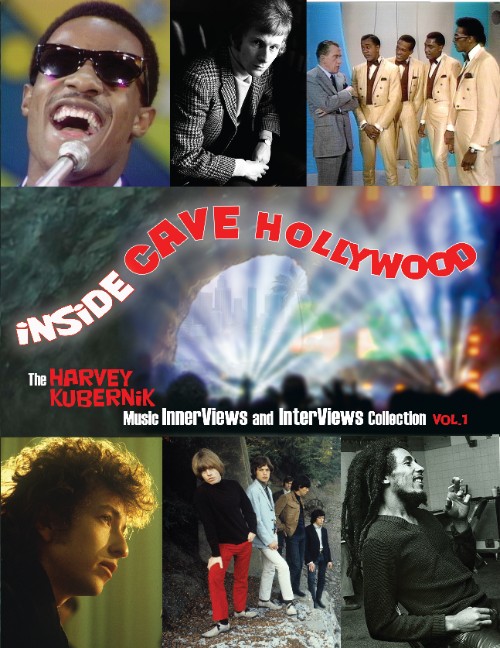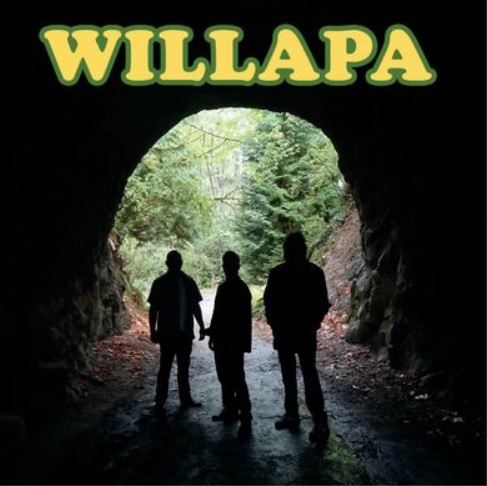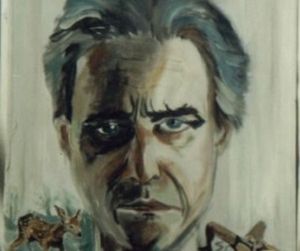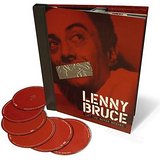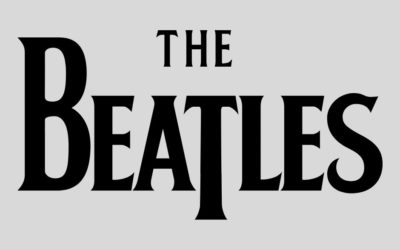Editors Note: The Phil Spector Christmas album “A Christmas Gift For You” is being reissued through the following merger:
SONY MUSIC ENTERTAINMENT AND EMI MUSIC PUBLISHING STRIKE HISTORIC NEW LICENSING DEAL TO RELEASE PHILLES RECORDS MONUMENTAL “WALL OF SOUND” CATALOG THROUGH LEGACY RECORDINGS
Legacy Recordings Launches Major Reissue Campaign
with New Physical & Digital Release of Out-of-Print Yuletide Classic
“A Christmas Gift For You”
Available Tuesday, October 27
Steve Escobar interviews the late Larry Levine, engineer at Gold Star Studios, about the Christmas Album.
LARRY LEVINE INTERVIEW by Steve Escobar
A TALK WITH LEGENDARY STUDIO ENGINEER AND PHIL SPECTOR’S RIGHT HAND MAN
Copyright December 2000
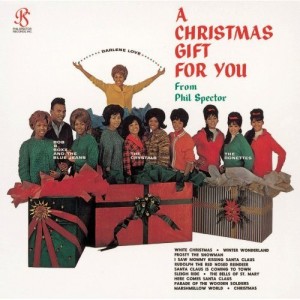 This holiday season while standing in long lines in department stores, fighting off colds and flu, or sitting in traffic jams …just when you think that it couldn’t get any worse, you try to calm your nerves by switching on your car radio and are bitten by those damn Singing Dogs! Or pestered by Chipmunks and annoyed by the details of some redneck’s grandmother being run over by a reindeer! While quickly changing the station you luckily find one with some mercy, and a real grasp on what the holidays should sound like. They’re playing one of many wonderful tracks from the Phil Spector Christmas album. A calming deterrent to road rage. A big, lush, and cheerful production paints a picture full of spruce trees, garland, lights, and ornaments as far as the mind’s eye can see! Whatever corny elements there are to these Christmas standards, Spector molds and shapes them back into something very hip and listenable. To help Spector construct his vision of what Christmas should sound like are people like the Ronettes, Darlene Love, Bob B. Soxx & The Blue Jeans, the Crystals, Hal Blaine and the Wrecking Crew, and last but not least, sitting at the controls is legendary sound engineer Larry Levine.
This holiday season while standing in long lines in department stores, fighting off colds and flu, or sitting in traffic jams …just when you think that it couldn’t get any worse, you try to calm your nerves by switching on your car radio and are bitten by those damn Singing Dogs! Or pestered by Chipmunks and annoyed by the details of some redneck’s grandmother being run over by a reindeer! While quickly changing the station you luckily find one with some mercy, and a real grasp on what the holidays should sound like. They’re playing one of many wonderful tracks from the Phil Spector Christmas album. A calming deterrent to road rage. A big, lush, and cheerful production paints a picture full of spruce trees, garland, lights, and ornaments as far as the mind’s eye can see! Whatever corny elements there are to these Christmas standards, Spector molds and shapes them back into something very hip and listenable. To help Spector construct his vision of what Christmas should sound like are people like the Ronettes, Darlene Love, Bob B. Soxx & The Blue Jeans, the Crystals, Hal Blaine and the Wrecking Crew, and last but not least, sitting at the controls is legendary sound engineer Larry Levine.
Mr. Levine spoke with me about making the Phil Spector Christmas album and also about many of the hundreds of hit records that he worked his engineering magic on with legendary producer Phil Spector.
SE: Were the sessions for this album done like so many other Christmas albums smack dab in the middle of Summer?
LL: No, it was later than that I recall, I can’t tell you precisely when but I know it was later because we were pushing it through. We were probably working fourteen, or fifteen hours a day on it. And of course Phil made everything be a single you know. I mean, it was never an album concept other than that he was going to do a dozen songs.
SE: It’s funny, I always envisioned you guys recording songs about jingle bells and snowmen, then taking a break, and walking outside for a coke in ninety-degree heat.
LL: Well, that may have been true, but we didn’t walk outside…(laughs) I have to tell you that I do recall that after it was over I told Phil that I didn’t want to work with him anymore.
SE: Really. Why’s that?
LL: Well, I was just so tired, and so worn out… you know, I told him, “Look, this is all about you anyway, you can do it anywhere with anyone. And it’s too hard and I don’t want to do it anymore!” I said, ” You don’t like to fly from New York to L.A. anyhow, you could do it in New York because you’re that great!” Anyway, we ended up not working together for about three months I guess. Then Sonny Bono who was working for Phil at that time… he came by and we talked and he said “Listen, Phil really wants to come back and work with you” and by that time of course I was rested and I kind of missed working on some of the hits so I was ready to have Phil come back too.
SE: It must’ve been tough loosing the engineer that helped get you that sound.
LL: It was good teaming obviously, but it was very hard to work with Phil, there was never a moment when you could really relax! When you play things back,…normally, after you’ve recorded something and you play it back, that’s a time you can relax. But not with Phil because I had to be mixing what I was playing back all the time. So we’d be playing it back, and back, and back, for forever it seemed like, until Phil heard what he wanted to hear or get an idea of what it was that he wanted to do to continue on. So we might be playing something back for an hour, eight bars or so back, and all this time I’m mixing, and if I miss a move, then I’ve gotta start again, because he needs to be involved totally with what he’s hearing.
SE: You couldn’t say let’s just lay tracks now and tweak it later?
LL: Oh no, Phil never worked anyway other than hearing it totally. And in context is where that whole “back to mono” thing happens, because he always felt that if you record anything in stereo, no matter how close you return things the next time, they were never exactly the same and the only way you could maintain it was to record mono. So, that was the reason for mono. Phil was very… well I guess you’ve heard all of the stories with musicians, that he hated to give them a break because he was afraid that things wouldn’t be the same when they returned. Not that he was opposed to giving people a rest or anything like that, it was just that he was always fearful that the people would not return to the exact position, which of course nobody would do…
SE: He didn’t want them to lose that spark.
LL: Yeah, so it was always tough for him to finally grant them a break, which he had to do obviously.
SE: You mentioned that you did the sessions in mono, but there are stereo mixes of those records floating around out there.
LL: Yeah, I guess when they went to England they made some… I mean we had off the Christmas album… that was made I guess on a three track at that point, we had an Ampex three track, and the band was all made mono, I mean, it was all recorded at one time. And we ended up overdubbing strings, and overdubbing vocals.
SE: I’ve heard those stereo mixes, and you’re right, the band is completely on one channel, and the vocals are over on the other, but there’s so much stereo reverb added that it sounds really full.
LL: I think whoever created those stereos helped do that to make it sound more stereo. Actually it’s binaural rather than stereo, so that’s how they accomplished that. But you say that the band was all together because it was recorded all at once and the only way it could go stereo is to add some instruments, which somebody may have done.
SE: When you did the Christmas album did Phil have all of the artists there at the same time and have them pitch in on each other’s tracks?
LL: I don’t recall precisely, I don’t think everyone was there but everyone was easily on call. I mean, everyone was in Los Angeles only forPhil, so whenever he wanted to do something at different times of the day and night…. and we mostly worked through the night, but …they were always available on call. A lot of it did include everybody… I mean, the background voices, everybody was singing background.
SE: Including anyone who happened to pop in as well?
LL: Yeah, if somebody did come by, but I don’t recall a bunch of visitors on the Christmas album. Afterwards when we were doing stuff there was always visitors coming in, which was an experience in itself. Because Phil always had the monitor up extremely loud. And of course after you’re in there for a few hours and you’re hearing it loud, you’re used to it. But when somebody new comes in… Well, every time someone came in that hadn’t been there, Phil would crank it up to impress, and of course all that they could hear was a roar! I know they couldn’t (laughs) hear anything meaningful, but he always did that.
SE: Didn’t Brian Wilson stop by and play piano on a session or two?
LL: Oh yeah, Phil was Brian’s hero, and Phil really liked Brian. As a matter of fact, Phil was always standing up for people who did the work and didn’t get the credit. And so he would really… as far as the Beach Boys were concerned, you know, Brian was the guy who did it, and not the producers that Capitol would put in there. And so Brian was always grateful and he idolized Phil. So yeah, Brian played piano on several things. He would come down whenever he could. He even wrote one of the songs that Phil ended up not recording. He wrote it for the Ronettes… I can’t think of the name of it right now. It was a moderate hit for the Beach Boys, but it was a romantic ballad…
SE: The Darlene Love track “Baby Please Come Home”, she does it every year on the David Letterman show. It’s played as much as any other Christmas song on the radio. Now, before the mid-80’s, I had never heard this song, but I’ve read in a couple of books that it was yanked from the airwaves because it was right after the Kennedy assassination and it was too depressing. Do you think that song is so huge now because of all the notoriety it‘s gotten or just because it’s finally had it’s day in the sun and people recognize it as a good song?
LL: Well yeah, it was a good song. I mean, I remember loving it when we did it. Now Phil was always on top of me, “Whaddaya think about it”? I was his sounding board or whatever. I remember one song that I had really liked when we recorded the track, and we had been working on it endlessly it seemed like, and he would keep badgering me, “Whaddaya think, whaddaya think?” And I remember one time I wasn’t really strong about it, (laughs)..And that was the end of that. He dumped it!
SE: Really? Which one was that?
LL: I don’t remember. It never got finished. But from that point on I realized that what I had to do was to take whatever my first impression was and stay with it no matter how tired I might get or whatever. I wouldn’t be dishonest and say that I liked something that I didn’t like, but it’s really hard to maintain that positive attitude throughout the whole thing and never let down. So I made sure that I took whatever my first impressions were and kept it up.
SE: I’ve always pictured Phil setting the mood in the studio, and creating the Christmas atmosphere for the artists. Did he do anything like that?
LL: No. Phil wasn’t at that point in his life… he didn’t treat artists graciously. He felt, and I’m sure he still feels… and I’m sure he’s right. That he could’ve taken anyone off the street and made a hit record with them. So the artist was just another tool. It grew difficult for me sometimes with having artists sitting around while Phil was doing whatever it was he was going to do and not pay much attention to them, but he had to do it. It was the only way he could work. But there were some problems along the way, which ended up turning into positive things. I remember one time, I don’t know which song it was in the album, but Phil would never let me edit tape because he’d had bad experiences back in New York with tape editing. And this one song, it was like three o’ clock in the morning and.. I remember it was Darlene and the other girls from the Blossoms were singing and they had done eight bars and we were playing this back endlessly it seemed like, because like I said, it was three o’clock in the morning, and I must have played it back two dozen, maybe thirty times, and they’re sitting there, and then all of a sudden at the end of these eight bars Phil say’s,” Now, this is where they come in!” and it’s like you know, hey, this is where they’re supposed to come in now, this is urgent! And so I hit the record button, and in those days there wasn’t a safe mode on the three track, so I hit that record button because I was going on his cue, and I’m hearing da da da da da da. And I stopped it right away (laughs) of course as soon as I realized that I was erasing a track.
SE: Oooh!
LL: Phil knew exactly what happened too and so Phil… I remember this, he put on his dark glasses, and we had a little card table in the front of the control room sitting in the corner, and he went and sat underneath it, up against the wall with his legs brought up to his chest and he just sat there knowing that we’d lost this record. And I played it back and… Are you a musician?
SE: I’m a drummer, yeah.
LL: Okay well, the song was an A-A-B-A you know, type song, and this was just at the first ending, which is the one that never gets repeated you know, the change from the first eight to the second eight, that never gets repeated, everything else basically does. And I had stopped this thing like two beats before that change came. I don’t know how I happened to do that, but it was two beats… if I had gone two beats longer, that was it! But I had made a duplicate of that ending, or that portion of it from the second eight and put it in and it worked perfectly! So from that time on, there never was any qualms about Phil letting me edit something. But it was things like that you know, that these late hours… and you get weary,…
SE: And I bet your ears would just burn out after awhile.
LL: And yet it was thrilling too to hear this stuff because it was just… I mean it was compelling then. You know, records were made… and I thank my lucky stars that we were doing it then, but you hear the whole sound instead of piece-meal, the way it is now. It was thrilling for me just to hear it.
SE: And you worked with him through the rest of the 60’s?
LL: Yeah.
SE: Did you work with him at all in the seventies?
LL: A little bit. He came over to A&M for a little while I guess because I was there, and we did some things with the Checkmates. (“Black Pearl”)
SE: He also did some stuff in the seventies with Cher, and Harry Nillson…
LL: Yeah, we came in and used the studio when he was doing things with John Lennon, but I wasn’t working with him then. Hey I was chief engineer there. I didn’t have to 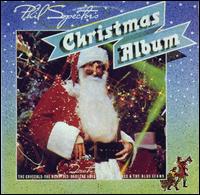 work all night anymore. (Laughs).. I was doing Herb Alperts stuff, which was a lot easier to do. But that wasn’t a happy period for Phil. He was a little crazy then. And I’m glad to say that he’s really a lot straighter now, and happier.
work all night anymore. (Laughs).. I was doing Herb Alperts stuff, which was a lot easier to do. But that wasn’t a happy period for Phil. He was a little crazy then. And I’m glad to say that he’s really a lot straighter now, and happier.
SE: That’s good to hear.
LL: Yeah.
SE: This record is probably the most played Christmas record every year!
LL: Well, the one thing that I really regret losing… the first time Phil did that narration against “Silent Night”, the first time that he did it, he did a mock thing and he used foul language, and it was so funny! It was something that there was no way that you could put out! He was saying you know, something like “I made this record for you cocksuckers…”
SE: (Laughs)
LL: Anyway, it was hilarious! But I lost it. I don’t know what happened to it. I would have loved to be able to retrieve that somehow.
SE: Well you never know, maybe it’s hanging at the end of a reel somewhere.
LL: No it’s not. I’ve checked every reel, every bit of tape along the way. I erased it because he wanted it erased. I know that.
SE: How long did it take to wrap up that album?
LL: I’m sure that under normal conditions it would have taken probably eight months. The way we did it, it probably took two or three. Maybe it was in July, who knows. That goes back nearly forty years. I’ve got enough trouble trying to remember what I’ve got to do today let alone what I did then. But I do remember all the high things that happened.
SE: I’m guessing that the band was done first. It wasn’t all done live was it?
LL: No. The band’s always done first. And as I said, each thing was approached as a single record. So, it wasn’t like all the band tracks were made and the voices were put on… as I recall, each song was done individually, and then put together as an album.
SE: So, when the groups came in and did their vocals, were there some songs that needed an endless amount of takes?
LL: There were always a lot of takes because Phil needed to hear what he wanted to hear. Everything…(laughs) was endless. There was no end! Everything went down pretty good because the songs were all terrific!
SE: Now when you guys started working together, that big “wall of sound” hadn’t been fully constructed yet. You could still hear all of the individual instruments. It was still pretty clear sounding. Did he just gradually work his way up to that big sound?
LL: Well, what happened is… of course the first song I ever worked on with Phil was “He’s a Rebel” which was not the wall of sound. But after “He’s a Rebel”… which he was doing in a rush because he was fighting a release by Vikki Carr… As a matter of fact, he told me that after we had finished it, and we did that real quick, he went over to United to master it. He was mastering it and he heard Vikki singing it in the studio. So they were both there. But he told me afterward that he had been looking for a studio that had the sound that he heard in his head and he hadn’t found it in New York. And this was the studio! Although he had worked there before with the Paris Sisters doing “To Know Him is To Love Him”. He did that at Gold Star. But now he was looking for this studio that had this sound to it and he felt he found it in Gold Star. So when he came back the next time which was three weeks or a month later to do “Zip a Dee Doo Dah”, that was basically the start of the wall.
SE: Yeah, you’re right. It did start to sound pretty big.
LL: The echo played a part, but maybe it was given too much credit because I think the room itself tended to meld stuff together. It was a small room and stuff bounced around in there. It was always a lot of work… I remember Phil used to say that the thing that he hated was that he could never get the same drum sound and he would refer to Motown you know? He said, “They nailed the drums down there and they’ve always got the same drum sound.” And he could never get it and, of course, the reason that he could never get it was because we had all this leakage from drums. It was always work to change things around so that I’d get a decent drum sound. But you know, it was a small price to pay for what it ended up being.
SE: I’ll say!
LL: But yeah, he did use the echo judiciously and as I said, the room itself added greatly to the melding of the instruments. Well, he worked for hours and hours anyway. I think part of it was… he may have had a sound that was okay to acceptable within an hour, but he kept working. And I often wondered if it wasn’t to tire the musicians out so that they weren’t playing so strong individually because they were all great musicians, and you could hear them… they would tend to play to their personalities and so what Phil wanted was this amalgamation, and so if they got tired they weren’t being so creative I guess. At any rate… and then it could’ve just been that it took him that long to hear it. But generally, each band track took about somewhere between three and four hours. They were always into overtime. But the takes we made were minimal. We might do two or three takes and that would be about it! He wouldn’t roll any tape until he heard what he wanted to hear and then it was almost always, you know, get it right away!
SE: So he wasn’t the type of guy that would record everything just to save for posterity, or to listen to later and see if there was something he missed the first time? Like some producers would let tape roll endlessly.
LL: I wish I’d had a tape rolling in the control room, I’ll tell ya’, because the pearls that came out of Phil when things were going good were terrific! He would do stand up comedy on the talk-back into the studio for twenty minutes at a time, and he was really funny. Everybody enjoyed those moments.
SE: Oh well. Hindsight’s 20/20.
LL: Oh yes! (Laughs). To have that stuff would’ve been more valuable than all of the records that he’s got out I know! Phil was unique in a couple of ways that I really enjoyed. In mixing down the elements later on, Phil would leave the room and I would mix the way I heard it, and however long it took me to do that, and then he would come back in when I had something, and he would critique it. And he would tell me what changes he heard in it and then he’d leave again, and I’d mix it again, then I’d call him… until we’d achieved the final! And I liked it for two reasons. One is, I didn’t have anyone looking over my shoulder while I was mixing for me and Phil always had a clean ear when he was listening, so it’s the best of both worlds. I really liked that. And Phil was always on top of… you could never bullshit him about mixing, or about being on a console. He always knew what was going on and a couple of people I know tried to do that and he never worked with them again.
SE: What’s your reaction to the fact that bands still try to get that sound that you guys got?
LL: Well, that’s always gonna happen when there’s something out there that’s meaningful. During the heyday, there was a producer who came and had wanted to record something using Phil’s guys and me, and make a wall of sound kind of record. And at first I said no, that I wasn’t gonna do that. And then I thought about it, and I realized that Phil is the reason that those things were great, not the musicians, not me. It was the songs he wrote and the sound he heard. And so that was really what it was, so I agreed to do it. And he got all the musicians, I don’t know, we had seventeen or eighteen of them I guess that were playing, and I’m setting it up and doing the rundown just like Phil would do, you know, which was start with guitars, and then add pianos, basses. Drums were the last thing to go… Anyway, so we’re doing this and the producers sitting next to me and he said, “What’s that guitar player doing there?” And I said,” He’s playing”, he says, “Well, I don’t hear him.” I say, “You’re not supposed to. He’s supposed to be blended in with the other guitars” And he says, “I’m paying for him and I want to be able to hear what he’s doing.” So, it ended up that way. He wanted to hear all the instruments, so it was never “the wall of sound” kind of thing. And the record was… well, the song was certainly not, you know, a great song. So, it was nothing, but it was just interesting to see a guy who wanted to do “the wall of sound” and then refused to do “the wall of sound”.
SE: He had all the ingredients, but he didn’t wanna follow the cookbook.
LL: Right. But it was Phil all the way! It was nice of him to give me credit… and I guess what I brought to it was my naiveté, because I’m not a musician. I was a fan and I loved the music, so he could bounce off of me that way. And I was honest so he knew that I wasn’t going to jive him. But I can’t take credit for what is Phil Spector’s.
SE: I would say that you could take a part of it.
LL: Well, I’m glad I was there.
SE: To use my same analogy, a cake won’t taste the same way twice if you use different ingredients.
LL: Phil would compare it to…he said Bergman, the director, was once asked about making films in America, and he said, “I really think that the American film industry is great, and the technicians are wonderful, but what it is… in a film there may be two or three minutes of real inspiration, and I have to trust the people I’m working with so much that I’m free for that inspiration when it comes and the only way I can do that is with the people that I know and have worked with.” And that’s the way Phil felt also.

